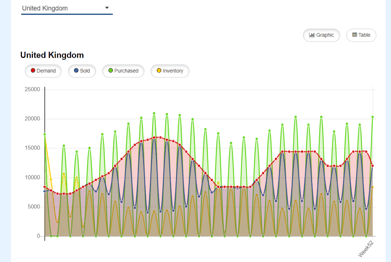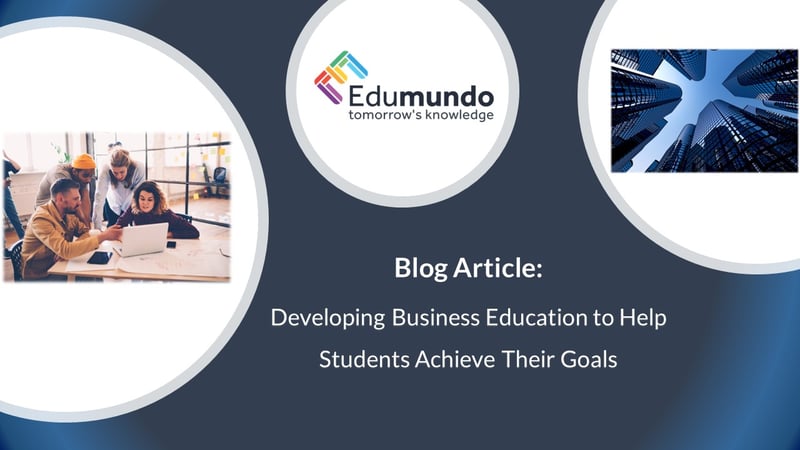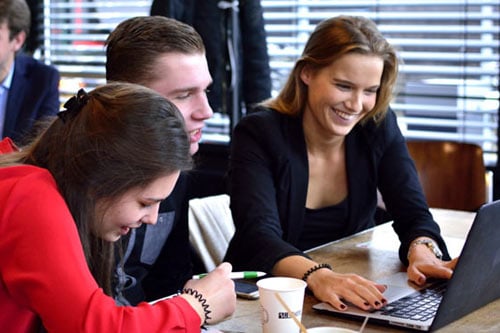Beyond the Bottom Line
Those in business education probably know that “the bottom line” is a phrase borrowed from accounting. In one way or another every business decision leads to an impact that affects the bottom line. It means that after all the inflow and outflows are accounted for the bottom line, or net cash flow, is what it is. Another application is the profit/loss bottom line: what’s the bottom line after total costs have been subtracted from the total revenue. Indeed all of economic theory is rooted in the profit seeking incentive of firms. A new generation of entrepreneurs are seeking to go beyond the financial ‘bottom line’. In one way or another every business decision leads to an impact that affects the bottom line which is why we include a financial analysis in all of our business simulations, but business decisions affect much more than just that. This calls on universities and colleges to create environments for studying business that appeal to a wider audience of applicants.
applicants.
Traditionally business educators have placed the highest emphasis on financial measures as the common thread between topics. Students in turn are rewarded for their ability to create these chains in reasoning. Indeed they are trained in how to think along those lines. An adjustment to the recruitment process leads to a change in staffing which in turn leads to a change in the performance of a function in, say, operations and so on. But how can you ask a student to create a successful marketing plan without knowledge of the financial structure of the company or the operations supporting it? The more holistic the view of the problem is then the deeper the connections made in coming up with a solution and deciding to act on it. Making decisions and reflecting on their results enables experiential learning.
Business as an Ecosystem
Business is an ecosystem of ideas and theories which only exist when they are put into practice; making decisions. This is the reason many MBA programmes include a capstone course that students are working towards to join-up their studied modules. Bachelors and masters degrees utilise dissertations much to the same effect. They serve as a cross-modular learning experience for the whole course. At the modular level business simulations provide similar experiences across module topics and between more than one module over the course of a term or year.
Business is as much an art as it is a science. Trying to predict a business's performance is a bit like predicting the weather, not an exact science. Using financial measures as a barometer for success is key to running a successful business but it is far from the only incentive of all entrepreneurs. For this reason attracting students to business education requires targeting a wider range of student goals. Creating more engaging learning environments requires tapping into the intrinsic motivation of students. There is a generation of socially conscious people looking for ways to help solve the climate crisis.
Providing a Mirror to the Real-World
“Business education provides you with that pathway if you want to truly have an impact in the realms of sustainable business practice.”
Professor Steve McGuire, Dean of the University of Sussex Business School in an interview in Forbes Magazine
 It stands to reason that if businesses are central to the climate crisis then the best way to make an impact on solving it is business. For the not so eco-minded, the socio-cultural fabric of society demands they develop an awareness as future people in business. Every student will have their own personal goals whether it's being their own boss, working with their family, improving mental health or saving the planet. It’s time to broaden the meaning of ‘the bottom line’ and provide learning experiences that best reflect the real world students will be going into after higher education.
It stands to reason that if businesses are central to the climate crisis then the best way to make an impact on solving it is business. For the not so eco-minded, the socio-cultural fabric of society demands they develop an awareness as future people in business. Every student will have their own personal goals whether it's being their own boss, working with their family, improving mental health or saving the planet. It’s time to broaden the meaning of ‘the bottom line’ and provide learning experiences that best reflect the real world students will be going into after higher education.
About the Author
George Sakoulas is our Business Development Manager for the UK and EMEA markets. A previous Business and Economics Teacher at Secondary and Further Education level, George holds an MBA in Marketing from the American College of Greece and Postgraduate Diploma in Teaching and Education.

Interested in discussing this blog article and finding out more about our catalogue of business simulations and gamification tools? Book a free meeting with George below.
CASE STUDIES
Check out our library of case studies to see how our academic partners have used simulations in their teaching.
CITATIONS
"Why Business Education Is A Pathway For Real Impact", Symonds, M; Accessed on: 04/01/2023; Accessed from: https://www.forbes.com/sites/mattsymonds/2022/11/18/why-business-education-is-a-pathway-for-real-impact/?sh=c5b616369859




.png?length=300&name=unnamed%20(11).png)
.png?length=300&name=unnamed%20(7).png)
.png?length=300&name=unnamed%20(8).png)
.png?length=300&name=unnamed%20(6).png)

.png?length=300&name=unnamed%20(10).png)
.png?length=300&name=unnamed%20(5).png)
.png?length=300&name=unnamed%20(9).png)
.png?length=300&name=unnamed%20(4).png)
.png?length=300&name=unnamed%20(2).png)
.png?length=300&name=unnamed%20(1).png)
.png?length=300&name=unnamed%20(3).png)
.jpg?length=300&name=unnamed%20(2).jpg)





.png?length=300&name=loughborough-university-logo%20(small).png)





